'For a man who had just received news of his daughter's kidnapping, he showed no sign of anxiety or agitation.'
'Here is a cool customer, I thought to myself.'
'The only thing he said was, 'I would not have been so anxious had they kidnapped my son'.'
'He told me that his daughter Rubaiya, who was a medical intern, was returning home from the hospital in a minibus when it was stopped close to the Mufti's house.'
'She was taken by four armed militants.'
A gripping excerpt from Moosa Raza's Kashmir: Land Of Regrets.

I had an appointment to meet the home minister on the afternoon of 8 December.
When I reached North Block at 4 pm, the minister's PA told me they had just received news that his daughter had been kidnapped.
When I was ushered in, the Mufti was on the phone.
He waved me to a seat in front of his desk.
The conversation was in Kashmiri, but I could make out that it was about the kidnapping.
When he put the phone down and turned to me, I could see that he was calm and collected.
For a man who had just received news of his daughter's kidnapping, he showed no sign of anxiety or agitation.
Here is a cool customer, I thought to myself.
The only thing he said was, 'I would not have been so anxious had they kidnapped my son.'
He told me that his daughter Rubaiya, who was a medical intern, was returning home from the hospital in a minibus when it was stopped near Navagam, close to the Mufti's house.
She was taken by four armed militants.
Since then, there had been no news of her.
I learnt that the JKLF (Jammu and Kashmir Liberation Front) had claimed responsibility for the abduction and were demanding the release of some of their members, who were in police custody for various alleged crimes, in exchange for the hostage.
- Also read: Kidnap!

In those days before the advent of mobile phones, we communicated only through landlines, which could be easily tapped at the telephone exchange.
It was suspected that many of those who worked at the exchange were sympathisers of the militants.
(Then Cabinet secretary T N) Seshan insisted that I speak with him only in Tamil, as it was unlikely that the exchange in Kashmir would have any Tamil-speaking staff sympathetic to the militants.
Our efforts were to keep the negotiations going through the intermediaries and, in the interim, locate the safe house and get her released through commando action.
Both the state police chief and the intelligence officials were opposed to the idea of using military force; they said it would pose a grave risk to the life of the hostage.
The police and paramilitary forces stepped up their patrolling, and photos of Rubaiya Sayeed were widely circulated.
Public opinion was mobilised to put pressure on the militants and the JKLF.
Statements were issued by opinion makers and political personalities, deploring the kidnapping of an innocent girl as an un-Islamic and unethical act.

The CM (Dr Farooq Abdullah) was rather unhappy at the pressure being brought on the state government by the Centre to release the militants in exchange for the home minister's daughter.
He was apprehensive that this would set a trend and lead to more kidnappings in the future.
I was told that not only the home minister but also his colleagues were troubled by the prolonged negotiations and wanted the matter to be resolved as quickly as possible.
In the first couple of days after the kidnapping, there was widespread condemnation of it in the press.
But as the days passed, there was a noticeable shift towards the primary objective of getting the girl released.
There was sympathy for her plight, and the pressure to release the militants and free her mounted.
I received a call from the Cabinet secretary at 1.30 am on 13 December.
In a rather stiff and formal tone, he said, 'This is the Cabinet secretary to the GoI, T N Seshan, speaking to the chief secretary of the state of Jammu and Kashmir, Mr Moosa Raza. I am speaking from the chamber of the prime minister of India.'
'The GoI desires the state government to note that it is their undiluted responsibility to ensure the safe release of the hostage without any injury to her, and we expect that all action you take will be consistent with this requirement.'
Having made this pontifical statement from the throne as it were, he abruptly disconnected.
The operative words were 'at all cost'.
In other words, 'release the militants'.
This also ruled out commando action, even if the police and the IB were to locate her whereabouts.
'Without injury to her' could only imply that.
Some of my advisors believed there was an implicit threat in the statement: If we could not get the girl released immediately, the state government would be held squarely responsible for the failure and may even be dismissed.
But it was still not clear to me whether the GoI had agreed to an immediate release of the imprisoned militants and desired us to accept the militants's terms, or not.

After waiting for half an hour, I rang up the Cabinet secretary in the hope that he would have returned from the PM's office by then and would clarify the sudden volte face.
I spoke to him in Tamil and asked to know the reason for the change in stance when I had almost concluded the negotiations without any loss of face to the government.
I also asked him about the implications of his message to me from the PM's chamber.
Seshan was aware that he was a lame duck Cabinet secretary and his days in the Rashtrapati Bhavan annexe were numbered.
He could not stand up to a PM with an imperial streak in him.
The Raja of Manda (Vishwanath Pratap Singh) had his way.
That last conversation with Seshan told me all I needed to know about him: Here was a man given to using strong and forceful language when dealing with his subordinates, but meek and obedient when it came to his bosses.
The news was received by the CM and me with grave concern, as it negated all the efforts at negotiations made until then.
I felt that since the girl could be brought back without an exchange, it would be in the national interest to wait.
But my arguments did not find any favour in Delhi.
The CM was so perturbed by this unwarranted intervention that he contemplated submitting his resignation immediately.
I informed the governor of the latest developments and the CM's state of mind.
Both (then governor) General (V K) Krishna Rao and I were hard put to dissuade him from such a precipitate action in the midst of a crisis.
We were to release the five militants to the three mediators, withdraw the police from certain localities and wait for three hours for Rubaiya to be handed over to us.
This proposal, fraught with unpredictable complications, was not acceptable to us.
I pointed out that once we had released the militants, we had no guarantee that the JKLF would honour its side of the bargain, particularly when there was a gap of three hours.
Anything could happen during those crucial hours.
Even if we trusted them to keep their side of the bargain, we had no way of knowing whether some other militant group opposed to the JKLF ideology (and there were many waiting on the sidelines for an opportunity) would take advantage of the situation and hijack the girl while she was on her way to Sonawar.
Dr Abdullah, who had all along been opposed to the release of the militants, was even more upset at this turn of events.
It was under extreme pressure from the Centre that he had even agreed to release the militants.
But having to wait for three hours before knowing whether the government had been taken for a ride was not the kind of situation that either he or I were prepared to face.
He was ready to tender his resignation there and then.
I think he spoke to the governor, who once again perhaps restrained him from doing so.
At 2.30 am, I met the CM and apprised him of the Cabinet secretary's approval and my subsequent conversation with him.
He was dismayed.
'They will destroy Kashmir,' he said.
I could hear the agony in his voice.
But reluctantly, he told us to go ahead and finalise the arrangements.
The next three hours were excruciating.
Even though I had obtained the necessary approvals, I was aware that these were all verbal.
If anything went wrong, and for some reason the girl did not turn up, my head would be on the chopping block.
There was every chance that everyone would wash their hands of the responsibility, and I would be accused of having released the militants off my own bat.
At 7.15 pm, a car pulled up at the house, and Rubaiya appeared.
She seemed to be in good health, though shaken by her ordeal.
Neither I nor the police ever got the opportunity of debriefing her.
Rubaiya remained inaccessible to state and central intelligence.
She could have given us valuable information, but I never even learnt where she had been held captive.
Seshan called to congratulate me on the successful conclusion of the episode.
He was effusive in his praise and asked me to convey the government's appreciation to my colleagues.
A couple of years later, I met Seshan, who was then chief election commissioner, at the VIP lounge in Delhi airport.
As we walked towards the security clearance gate, I asked him, 'I have always wondered about the sudden change in your approach when you dictated that ultimatum to me on the morning of 13 December.
What was the reason for that?'
'The game was much bigger,' he said, with a sardonic smile.
'The target was much higher.'
'And what was that?' I asked.
His reply is a story for another day.
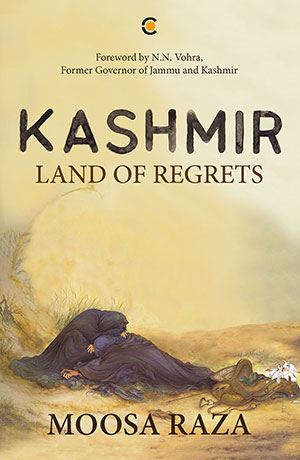
Excerpted from Kashmir: Land Of Regrets by Moosa Raza, with the kind permission of the publishers, Westland Books.
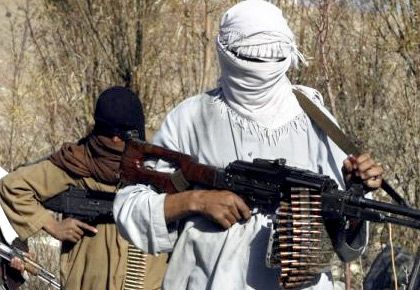

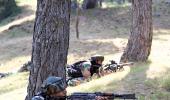
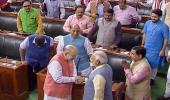
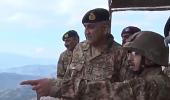
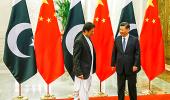



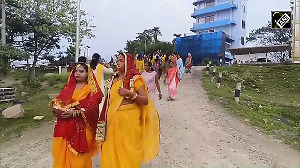
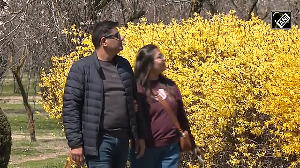

 © 2025
© 2025